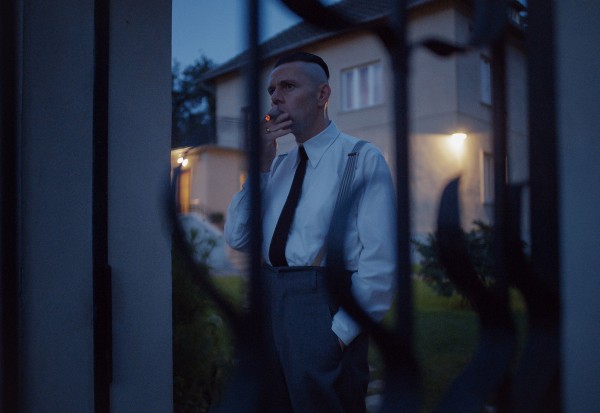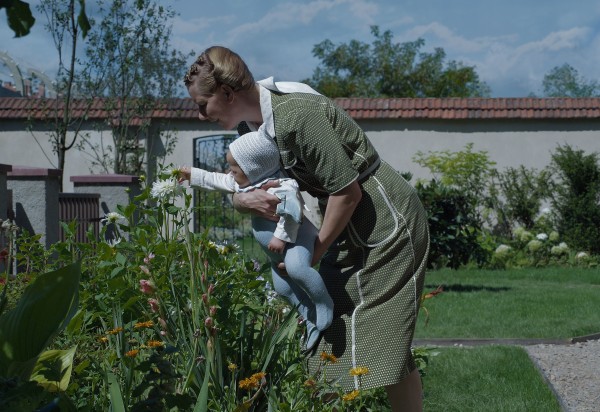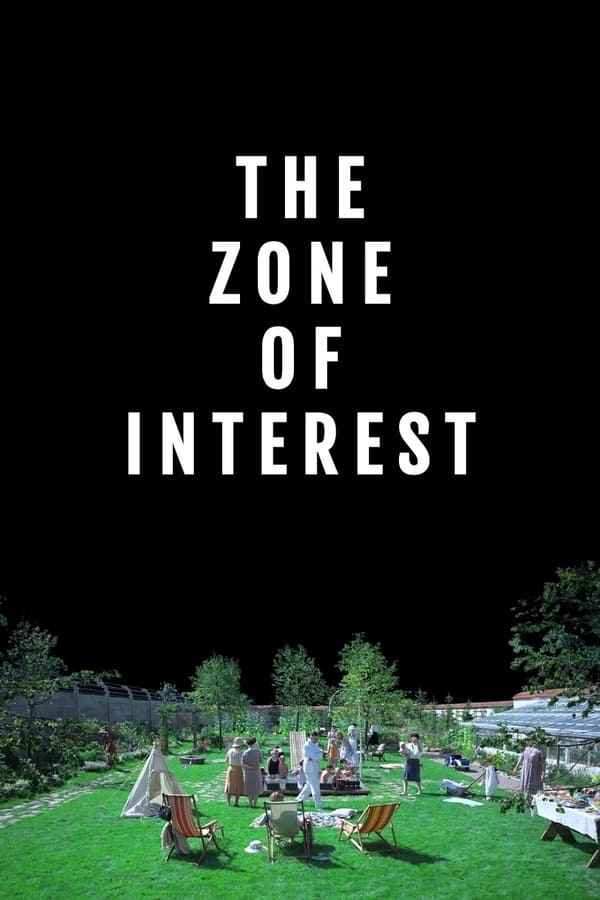This international historical drama tells the story of the commandant of the Auschwitz Concentration Camp who lives with his wife and children in a house built next to the Camp.
THE ZONE OF INTEREST. Starring: Christian Friedel, Sandra Huller, and Imogen Kogge. Directed by Jonathan Glazer. Rated M (Holocaust themes). 105 min.
Review by Peter W Sheehan, Jesuit Media Australia
The film is a co-production of Poland, the USA, and the United Kingdom. It is written and directed by London-born Theatre-Film Director, Jonathan Glazer and is based loosely on the 2014 novel, of the same name, by the late Martin Amis. In 1943, SS Commandant of the Auschwitz Concentration Camp, Rudolph Hoss (Christian Friedel), wants to spend an idyllic time with his wife Hedwig (Sandra Huller) and his children in his new house. The house has been built next to the Concentration Camp. The movie’s title, “The Zone of Interest”, refers to an idyllic residence placed next to a house of horrors.

The film won the Grand Prix, and FIPRESCI Prize (which recognises films of particular importance) at the 2023 Cannes Film Festival, and was selected as one of the top five films of 2023 by the National Board of Review. Sandra Huller was the lead actress in the much-honoured 2023 movie, “Anatomy of a Fall”. The movie also won the Boston Society of Film Critics’ awards for Best Film, Best Director, and Best Screenplay for Director, Jonathan Glazer. Beyond the walls of Rudolf’s house, he and his family are exposed constantly to the sounds of furnaces firing, trains, gunshots, sounds of belching smoke, and the distant noises of humans in distress. They take place while Hoss is working on the design of a new crematorium scheduled to open soon.
The Director of the movie, Jonathan Glazer, did not want the horrors of the Concentration Camp to be seen, but he wanted them heard. Only a thin wall separated Hoss and his family from horrific atrocities. In official recognition of his “worth”, Hoss was appointed Deputy Director of Concentration Camps, which required him to move to a new position away from his house. His wife, Hedwig refused to go, but Hoss decides to take up his new appointment. The horrors of the Camp next to her home starts to affect Hedwig, her children, and Hedwig’s mother, Linna (Imogen Kogge), who moves out of the family house, hating what she is hearing and visualising, and she departs in the middle of the night without telling her daughter. Hoss continues with his work, and is put in charge of the transport of thousands of Jews to Auschwitz to be killed. With his body beginning to physically register the mental distress from what he is responsible for, we see him leaving a building at night. The film concludes with Hoss walking down an empty stairway, that fades into complete greyness, which is precisely the scene that began the movie.


This is a film that communicates dispassionately how people, like those in the family this film shows, can become complicit in horrific crimes. The film is fiercely “aurally dramatic”, and its studied lack of sentimentality is utterly effective. The extreme inhumanity, that the film shows, renders the film profoundly disturbing.The film is a harrowing account of Nazi brutality and atrocity that compellingly projects the attitude of a nation that preferred to know nothing about what was occurring. This is a chilling movie that is hard to forget. Films like this one deal with events that can never be disputed, but the question “WHY did they happen?” still awaits an answer.
Peter W. Sheehan is an Associate of Jesuit Media


